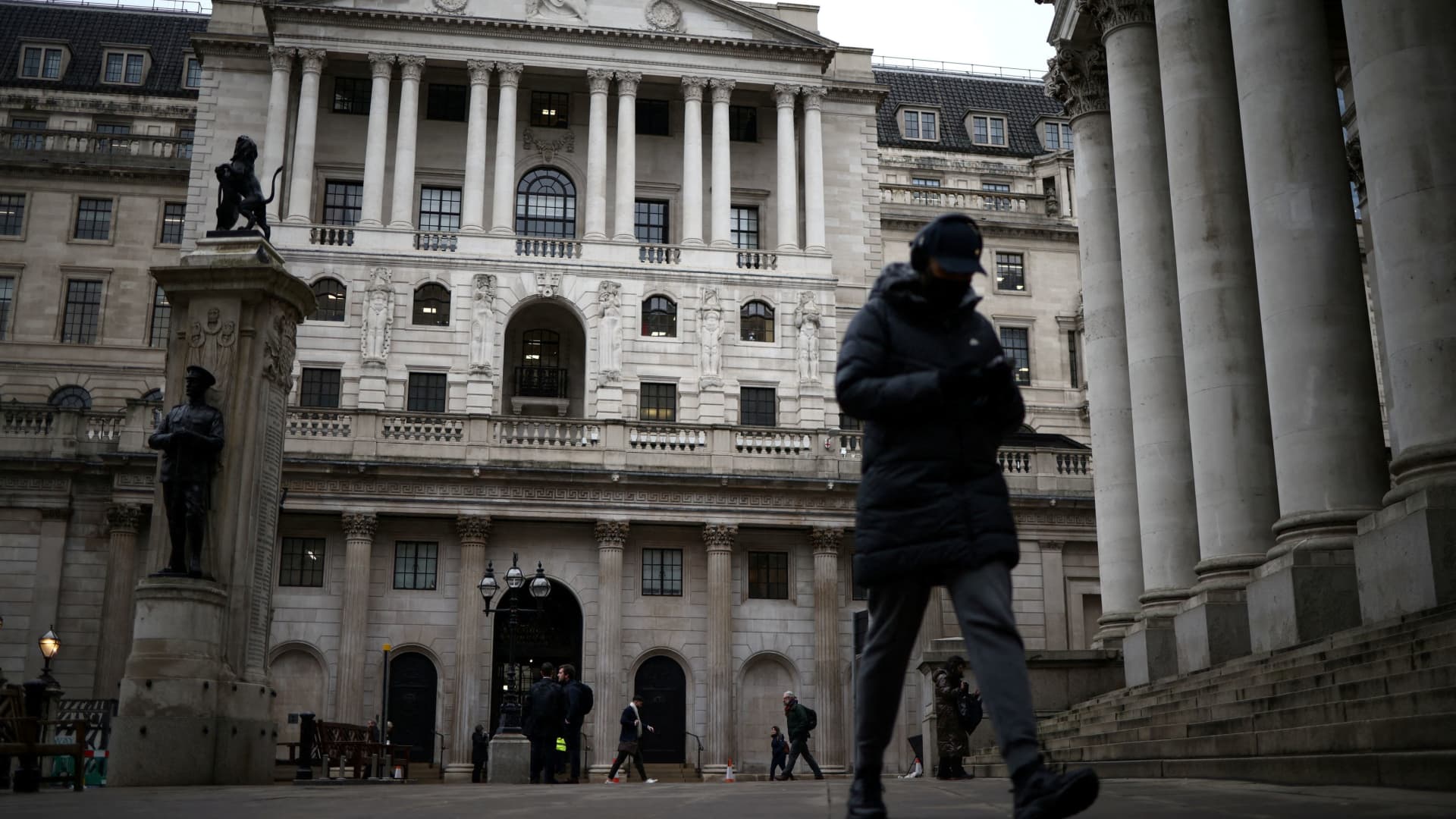People walk outside the Bank of England in the City of London financial district, in London, Britain, January 26, 2023.
Henry Nicholls | Reuters
U.K. government borrowing costs fell sharply Thursday, continuing a pull-back from recent highs, after the Bank of England joined the Federal Reserve in holding interest rates steady for a second straight month.
Bond prices — which move inversely to yields — rallied as investors appeared to disregard comments from the central bank heads that further rate hikes are not off the table and that there is a long way to go to bring inflation to target.
The 10-year yield on U.K. government bonds, known as gilts, was 13 basis points lower at 4.366% at 3:20 p.m. in London following the Bank of England announcement at midday. The 2-year yield, a reflection of interest rate expectations, was down 8 basis points at 4.711%.
Elsewhere in Europe, bond yields have also been sliding.
German 10-year bond yields fell following the Fed decision and were around 5 basis points lower on Thursday, while Italy’s 10-year yield was down 9 basis points.
The European Central Bank held rates last week. ECB chief economist Philip Lane said Thursday there was a “good chance” the euro zone would avoid a recession despite risks from the credit market and after the economy contracted in the third quarter.
Global markets are taking their main cues from the Fed, according to analysts.
Fed Chair Jerome Powell’s “more-dovish-than-expected tilt at the FOMC press conference,” was one key reason behind falling yields, according to Steve Englander, head of global G10 FX Research and North America macro strategy at Standard Chartered.
U.S. Treasury yields, which touched 16-year highs in October, were also sharply lower Thursday as investors continued to digest the Fed comments.
“The market did not shift to risk-on until Powell indicated that risks of over-tightening versus under-tightening were better balanced, downplayed the last hike in the FOMC September projections and expressed optimism on the progress of wages,” Englander said in a note Wednesday. “He was careful to state that the FOMC was far from cutting, but did not sound particularly eager to hike further.”
Bond yields were also reacting to the U.S. Treasury’s unexpectedly moderate refunding projections and weaker-than-forecast U.S. manufacturing data, he added.
Equities, meanwhile, got a boost Thursday as risk-on appetite returned, with Europe’s Stoxx 600 index climbing 1.8% and U.S. stock markets opening higher.

